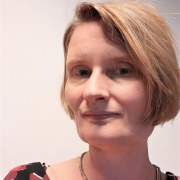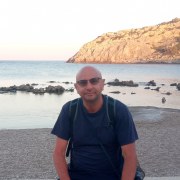Science learning ecologies are the contexts that contain a wide variety of experiences, across a range of institutions and places both in—and more increasingly—outside school, allowing youth different and multiple ways to engage with science. This session focuses on the exploration of the nature and effects of out-of-school science education and their influence on science proficiency. Exemplary out-of-school science learning experiences will be presented along with their potential for aligning formal and informal assessment schemes for promoting science proficiency. Furthermore, we will discuss how contemporary ICT advancements, such as mobile, gamified and wearable technologies, provide opportunities both to users and providers of informal science education, especially under the current challenging circumstances.
Senior Researcher & Project Manager
Ellinogermaniki Agogi SA
Athens
Greece
Assitant Professor in the Learning Sciences
University of Twente
Enschede
Netherlands
Children participate in a variety of in- and out-of-school science activities that serve diverse goals and produce different learning outcomes. Together these activities contribute to an individual’s science proficiency. To gain a better understanding of the effects of in and out-of-school science learning, we present a six strand model for science proficiency. The proposed six strands serve as a framework for the design and assessment of out-of-school science activities, taking into account cognitive and affective outcomes to acknowledge the learner as a whole.
Project Manager
Napoli
Italy
The design of a science learning ecology is not just a question of space planning, but it is intrinsically connected to the development of a narrative path representing the basic structure of the entire science learning process. A learning pathway focused on the life of social insects and addressed to a sample of primary school students, becomes a case study for the development of a research methodology to identify good science learning practices outside the classroom.
Prof.
Norwegian University of Science and Technology
TRONDHEIM
Norway
Science learning is taking place through various coding, making, and play activities that young learners are increasingly engaged with, offering an unparalleled opportunity to advance a progressive educational agenda. The elements of fun and playfulness are dominant therein, harnessing joy, wonder, and natural curiosity towards personal engagement and investment in learning. ICT advancements also help unlock those opportunities by coping with contemporary challenges such as the current pandemic.




